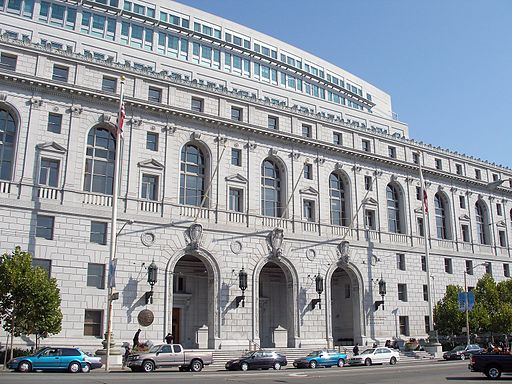The Service Employees International Union (SEIU) and four app-based drivers sued the state government in the California Supreme Court on January 12, 2021. The SEIU is seeking to have Proposition 22 declared unconstitutional and unenforceable.
Proposition 22 was approved at the election on November 3, 2020, with 58.6% of the vote. The ballot initiative defined app-based transportation (rideshare) and delivery drivers as independent contractors and not employees or agents. The ballot measure overrode Assembly Bill 5 (AB 5), signed in September 2019, on the question of whether app-based drivers are employees or independent contractors.
In October 2020, the California First District Court of Appeal ruled that Lyft and Uber were misclassifying their drivers as contractors but gave the companies 30 days to implement changes unless Proposition 22 was approved.
DoorDash, InstaCart, Lyft, Postmates, and Uber funded the campaign Yes on Proposition 22, which received $203.0 million in contributions. Opponents of Proposition 22 received $19.7 million, and the top-five donors were labor unions, including the SEIU Local 721, SEIU Local 1021, and SEIU-UHW West. With $225.0 million between supporters and opponents, Proposition 22 was the most expensive ballot measure in California history, surpassing the next closest measure by $70.5 million.
Following the announcement of litigation against Proposition 22, Bob Schoonover, president of SEIU California, said, “Prop. 22 doesn’t just fail our state rideshare drivers, it fails the basic test of following our state constitution. The law as written by Uber and Lyft denies drivers rights under the law in California and makes it nearly impossible for lawmakers to fix these problems.” Kathy Fairbanks, a spokesperson for Yes on Proposition 22, provided a statement from an app-based driver, which said, “Meritless lawsuits that seek to undermine the clear democratic will of the people do not stand up to scrutiny in the courts.”
Petitioners argued that Proposition 22 violates Section 4 of Article XIV of the California Constitution, which “grants to the Legislature ‘plenary power, unlimited by any provision of this Constitution’ to establish and enforce a complete system of workers’ compensation.” Proposition 22, according to the petitioners, removed app-based drivers from the state’s system of workers’ compensation and therefore limited the legislature’s constitutional power to extend workers’ compensation benefits to app-based drivers. Petitioners also argued that Proposition 22 violated the single-subject rule for initiatives and included a definition of the word ‘amendment’ that is too expansive and “impermissibly usurped this Court’s authority to ‘say what the law is’ by determining what constitutes an ‘amendment’”, and “impermissibly invaded the Legislature’s broad authority to legislate in areas not substantively addressed by the initiative.”
Additional reading:


